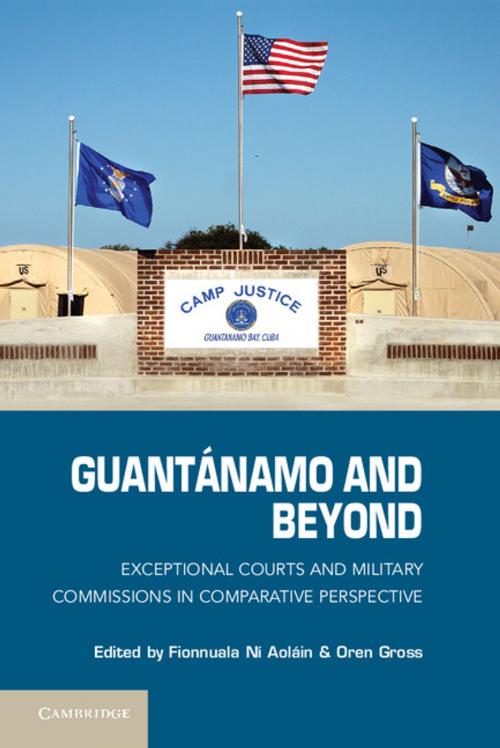Guantánamo and Beyond
Exceptional Courts and Military Commissions in Comparative Perspective
Nonfiction, Reference & Language, Law, International, Criminal law| Author: | ISBN: | 9781107460591 | |
| Publisher: | Cambridge University Press | Publication: | August 26, 2013 |
| Imprint: | Cambridge University Press | Language: | English |
| Author: | |
| ISBN: | 9781107460591 |
| Publisher: | Cambridge University Press |
| Publication: | August 26, 2013 |
| Imprint: | Cambridge University Press |
| Language: | English |
The Military Commissions scheme established by President George W. Bush in November 2001 has garnered considerable controversy. In parallel with the detention facilities at Guantánamo Bay, Cuba, the creation of military courts has focused significant global attention on the use of such courts to process and try persons suspected of committing terrorist acts or offenses during armed conflict. This book brings together the viewpoints of leading scholars and policy makers on the topic of exceptional courts and military commissions with a series of unique contributions setting out the current 'state of the field'. The book assesses the relationship between such courts and other intersecting and overlapping legal arenas including constitutional law, international law, international human rights law, and international humanitarian law. By examining the comparative patterns, similarities and disjunctions arising from the use of such courts, this book also analyzes the political and legal challenges that the creation and operation of exceptional courts produces both within democratic states and for the international community.
The Military Commissions scheme established by President George W. Bush in November 2001 has garnered considerable controversy. In parallel with the detention facilities at Guantánamo Bay, Cuba, the creation of military courts has focused significant global attention on the use of such courts to process and try persons suspected of committing terrorist acts or offenses during armed conflict. This book brings together the viewpoints of leading scholars and policy makers on the topic of exceptional courts and military commissions with a series of unique contributions setting out the current 'state of the field'. The book assesses the relationship between such courts and other intersecting and overlapping legal arenas including constitutional law, international law, international human rights law, and international humanitarian law. By examining the comparative patterns, similarities and disjunctions arising from the use of such courts, this book also analyzes the political and legal challenges that the creation and operation of exceptional courts produces both within democratic states and for the international community.















